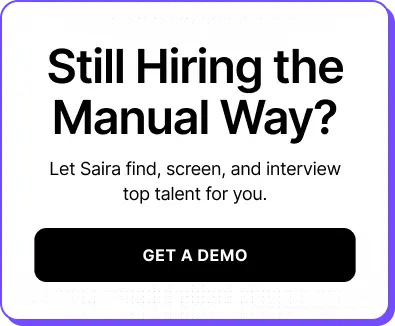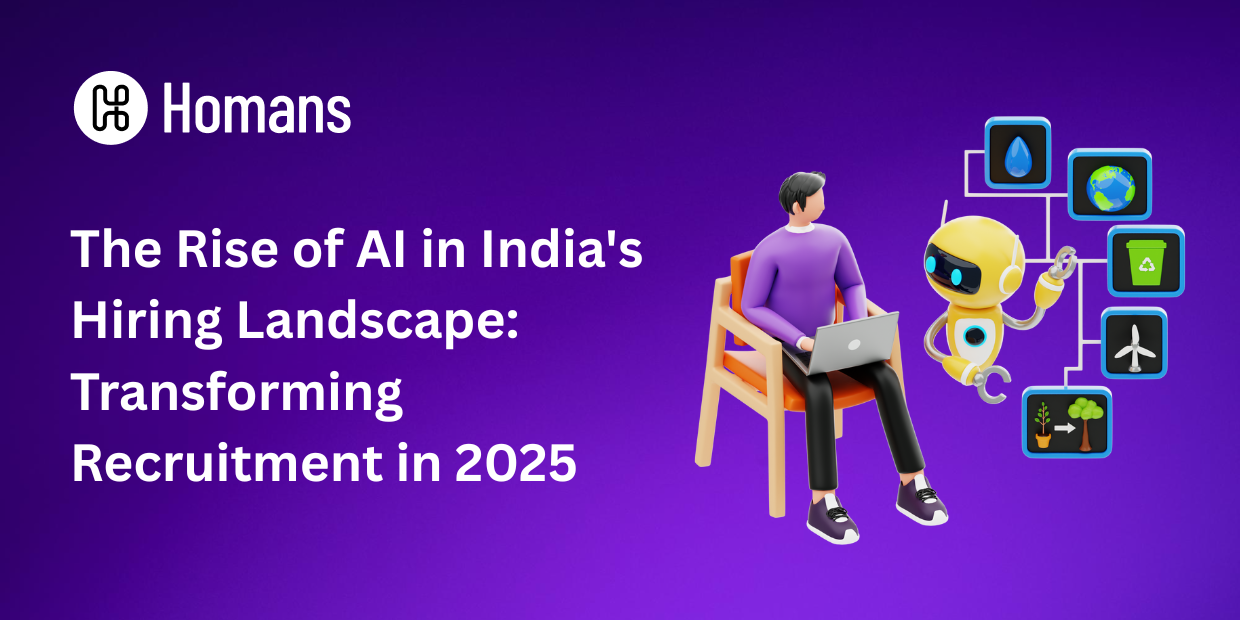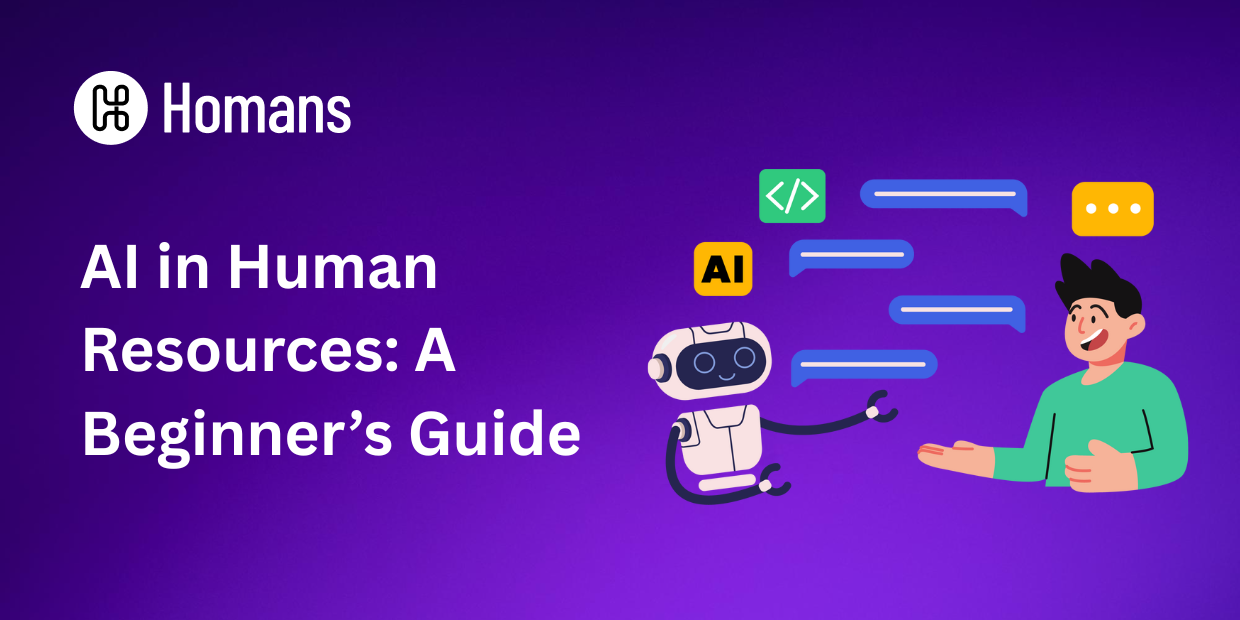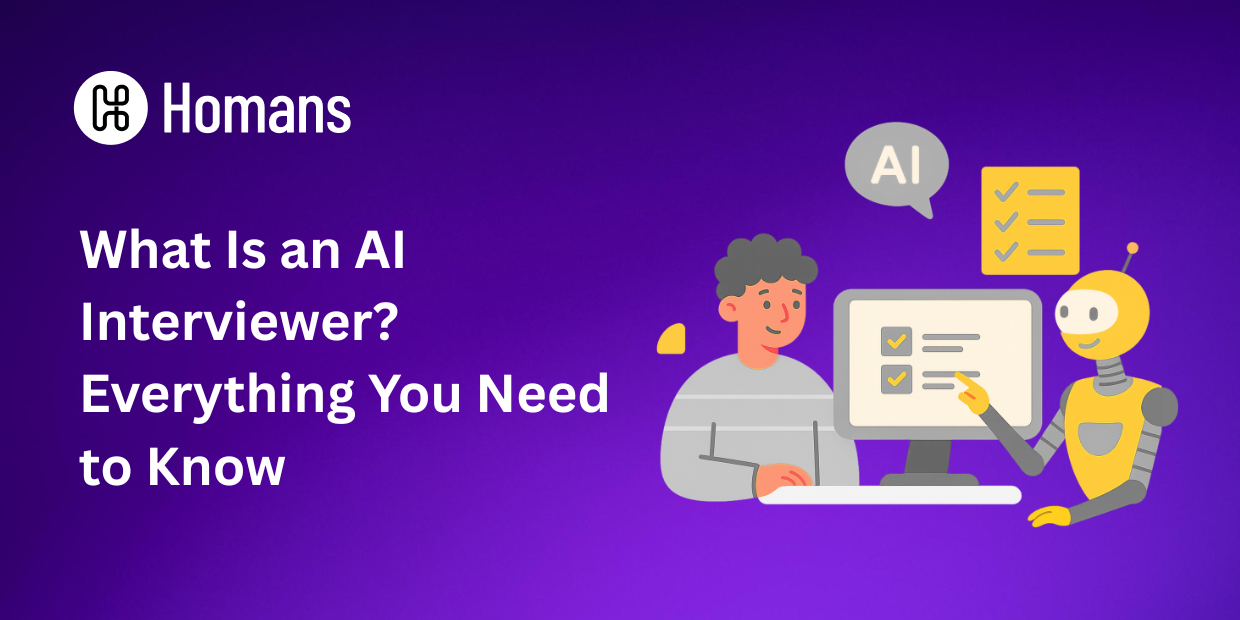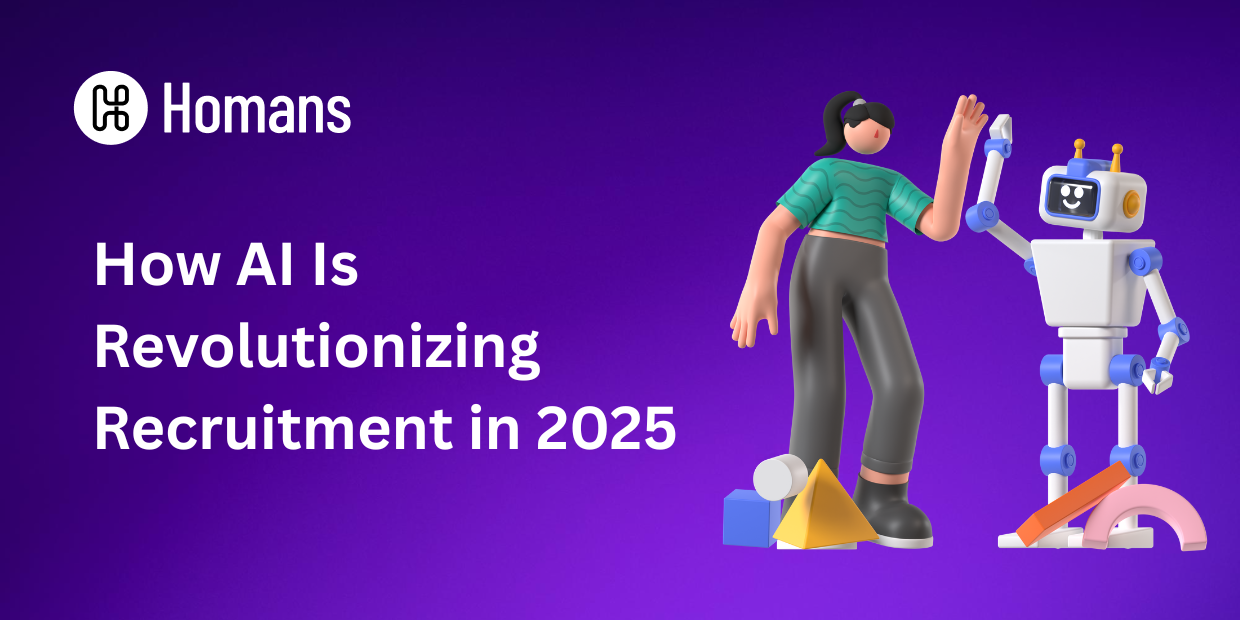India’s recruitment ecosystem is experiencing a revolutionary transformation as artificial intelligence emerges as the driving force behind modern hiring practices. From bustling tech hubs in Bengaluru to emerging GCCs in tier-2 cities, AI is reshaping how companies discover, evaluate, and onboard talent across the nation.
The AI Revolution in Indian Hiring: By the Numbers
The statistics paint a compelling picture of AI’s rapid adoption in India’s hiring landscape. Job postings in AI/Data roles have surged by 38-45% year-over-year, with the highest demand recorded in Q3 FY251. More remarkably, GenAI-specific roles experienced explosive growth of 178%, signaling a fundamental shift in the types of skills and professionals companies seek.
The demand for AI professionals has reached unprecedented levels, with over 450,000 active AI job listings currently live across India2. This surge is not limited to traditional tech roles – AI/ML hiring has registered a sharp 25% year-on-year growth3, with cities like Delhi-NCR leading the charge with a 35% surge, followed by Chennai (34%) and Kolkata (33%).
Perhaps most telling is the broader acceptance of AI in the workplace. 98% of Indian business leaders have made AI adoption a top priority for 2025, while 96% of Indian professionals are already using AI and generative AI tools at work – significantly higher than the 81% in the US and 84% in the UK.
How AI is Transforming the Hiring Process
Resume Screening and Candidate Matching
AI-powered resume screening has become the cornerstone of modern recruitment in India. Companies utilizing AI in their hiring processes have achieved up to a 50% reduction in time-to-hire6, while simultaneously improving candidate quality. AI algorithms can analyze thousands of resumes in seconds, identifying candidates whose skills and experience most closely match job requirements through advanced Natural Language Processing (NLP).
Major Indian IT companies including Infosys, TCS, and Wipro have successfully integrated AI into their recruiting procedures. For instance, Infosys uses AI-powered chatbots to interact with potential applicants in the early phases of recruitment, while TCS employs automated screening systems to filter resumes and create shortlists.
Predictive Analytics and Candidate Assessment
AI’s predictive capabilities are helping Indian companies make more informed hiring decisions. 69% of recruiters now use data analytics for informed decision-making, and 63% rely on AI tools to boost accuracy and efficiency. These systems can predict candidate success, identify potential cultural fit issues, and even forecast retention rates.
Video interview platforms analyzed by AI provide real-time insights into candidate competencies through tone analysis, language patterns, and behavioral cues. This technology enables hiring managers to gain deeper insights into candidate potential beyond traditional resume metrics.
Automated Communication and Scheduling
AI-driven chatbots and communication tools are streamlining candidate engagement throughout the hiring process. Over 60% of candidates are comfortable with AI handling various aspects of the recruitment process, from initial job matching to scheduling interviews and providing status updates.
These automated systems ensure consistent, timely communication with candidates, addressing one of the most common pain points in traditional recruitment where 58% of companies lose top candidates to faster-moving competitors9.
The Skills Revolution: What Companies Are Seeking
The AI transformation has fundamentally altered the skills landscape in India. The demand for specialized tech roles is anticipated to surge by 30-35%, driven by increasing reliance on emerging technologies. Key areas experiencing massive growth include:
- GenAI Engineers and LLM Ops Specialists: Emerging roles replacing traditional AI/ML career paths1
- Data Engineering: Growing by 61%, becoming central to GenAI and cloud platforms
- MLOps, AI Governance, and AI Product Management: New roles addressing the operational aspects of AI deployment
- AI Ethics and Compliance: Specialists ensuring responsible AI implementation
Machine learning is uniquely among the top five most sought-after skills in India5, with professionals twice as likely as global counterparts to focus on it. The compensation reflects this demand – AI-related job postings have surged by 21% annually since 2019, with compensation growing 11% annually.
Geographic Expansion and Opportunities
The AI hiring boom is not confined to traditional tech hubs. Tier-2 cities saw an impressive 48% increase in IT hiring during Q3 2024, indicating a geographic diversification of opportunities beyond Bengaluru, Mumbai, and Delhi-NCR.
Cities like Hyderabad, Pune, Chennai, and Gurugram are emerging as significant AI hiring centers2. This expansion is driven by the establishment of Global Capability Centers (GCCs), which accounted for 52.6% of job openings for tech professionals and are increasingly focusing on AI and data science roles.
The Challenge of Talent Gap
Despite the explosive growth in AI job opportunities, India faces a significant talent shortage. By 2027, India’s AI sector could surpass 2.3 million job openings, while the AI talent pool is expected to grow to only around 1.2 million. This represents a massive opportunity for reskilling over 1 million workers.
The current AI talent pool of 416,000 professionals meets only 49% of industry demand13. This gap is driving companies to invest heavily in upskilling initiatives, with 73% of Indian employers increasing their investment in training over the past year5.
Benefits and Challenges of AI Adoption
Benefits for Organizations
1. Enhanced Efficiency: AI reduces recruitment time by automating repetitive tasks, allowing HR teams to focus on strategic activities.
2. Improved Quality of Hire: 72% of recruiters rate ‘quality of hire’ as their most important success metric9, and AI helps achieve this by providing more accurate candidate assessments.
3. Cost Reduction: Digital hiring solutions significantly reduce per-hire costs while expanding the talent pool.
4. Bias Reduction: When properly implemented, AI can help mitigate unconscious bias in hiring decisions.
Challenges and Concerns
1. Algorithmic Bias: AI systems can perpetuate existing biases if trained on biased data. Research shows that AI models favored white-associated names 85% of the time and female-associated names only 11% of the time.
2. Data Privacy: With AI tools collecting vast amounts of candidate data, ensuring privacy and compliance becomes crucial.
3. Candidate Experience: 67% of candidates strongly disagreed with preferring AI interviews over traditional in-person interviews18, highlighting the importance of maintaining human touchpoints.
4. Skills Gap: Organizations need to invest in training their HR teams to effectively leverage AI tools.
The Future of AI in Indian Hiring
Looking ahead, several trends are shaping the future of AI in Indian recruitment:
AI Agents and Automation
By 2027, 25% of enterprises using generative AI plan to deploy AI agents, growing to 50% by 202719. Companies like Workday have announced Recruiter Agents designed to create job descriptions, source candidates, and schedule interviews while providing insights on top candidates.
Skills-Based Hiring
The focus is shifting from traditional qualifications to skills-based assessments. AI-related skills are no longer niche but foundational across roles, with curiosity and growth mindset becoming key differentiators in the tech-driven job market.
Ethical AI Implementation
As AI adoption accelerates, companies are prioritizing ethical AI practices. AI systems must be free from bias, ensuring equitable treatment of all individuals, and organizations are implementing governance frameworks to ensure responsible AI use in hiring.
Success Stories and Case Studies
Indian companies are already reaping the benefits of AI-driven recruitment:
- Pradeep IT Consulting closed 70+ tech roles twice as fast using AI recruiters, with 90% of initial interviews handled by AI agents22
- TechFin Labs replaced a manual screening process that took 3-4 days per role with AI solutions that provided almost instant results22
- CloudNova reported that AI handled 90% of their initial interviews with precise scoring on skills, communication, and behavior22
Best Practices for AI Implementation
For companies looking to embrace AI in their hiring processes, several best practices emerge:
1. Start with Clear Objectives: Define what you want to achieve with AI – whether it’s reducing time-to-hire, improving candidate quality, or expanding your talent pool.
2. Ensure Data Quality: AI systems are only as good as the data they’re trained on. Invest in high-quality, diverse datasets.
3. Maintain Human Oversight: AI should augment, not replace, human decision-making in recruitment.
4. Focus on Candidate Experience: Ensure AI tools enhance rather than detract from the candidate experience.
5. Prioritize Ethical Considerations: Implement frameworks to prevent bias and ensure fair hiring practices.
Conclusion: Embracing the AI-Powered Future
The rise of AI in India’s hiring landscape represents more than just technological advancement – it’s a fundamental reimagining of how organizations discover, evaluate, and engage with talent. With 95% of Indian employees believing that AI in the workplace can improve their quality of life23 and 88% wanting to be more accepting of AI23, the foundation for widespread adoption is solid.
As India moves toward its goal of becoming a $5 trillion economy, the ability to efficiently identify and hire the right talent will be crucial. Companies that embrace AI-driven recruitment strategies today will be better positioned to compete for the 2.3 million AI-related job opportunities expected by 2027.
The future of hiring in India is not just about adopting new technology – it’s about creating a more efficient, fair, and effective system that benefits employers, candidates, and the broader economy. As AI continues to evolve, so too will the opportunities for organizations to build stronger, more diverse, and more capable teams.
The transformation is already underway, and the companies that adapt quickly will gain a significant competitive advantage in India’s rapidly evolving job market. The rise of AI in India’s hiring landscape is not just a trend – it’s the new reality of recruitment in the digital age.

